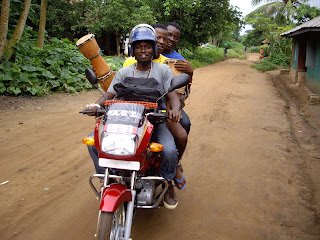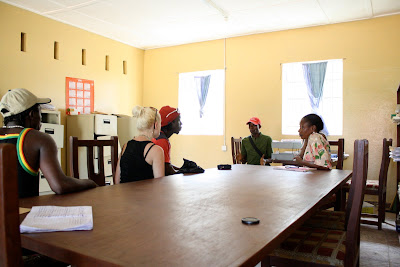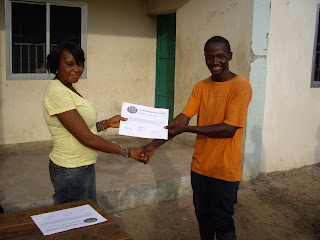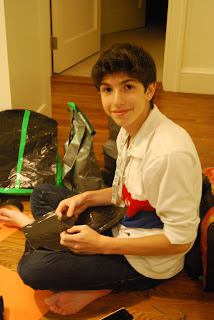Youth in Arts and Arts Education International are teaming up for an innovative new take on pen-palling. The 27 eighth-graders at Willow Creek Academy in Sausalito are participating in a “hat exchange” with 27 students of Arts Education International in Sierra Leone, West Africa. With the help of artist Keith “K-Dub” Williams, the students are designing and painting their own trucker hats to send to Sierra Leone, in exchange for a hat designed and painted by their pen-pal abroad. The hats are accompanied by digital story-telling projects that feature the voice and picture of each student displaying their design and describing what it means to them.
“The purpose of the exchange is to connect the kids YIA serves in Marin County with the children we serve in Africa through the arts,” says Sarah Geller, Executive Director of Arts Education International. “We hope that this project will help the kids on both sides to articulate their own identity in a way that is fun and creative, and to consider that identity in a larger context of global awareness.”
"We want youth to have a broader sense of the world around them, and what better way to do that than through an art exchange?" says Miko Lee, Executive Director of Youth in Arts. "We view this as just the beginning of a strong partnership with Arts Education International."
Frankie, a 13-year-old from San Rafael wrote “Latino” on the brim of his hat. Frankie suggested that, perhaps, a student in Africa might not know what it means to be Latino in America. “Latino means that I speak Spanish,” he explains to his pen-pal in his voice recording, “I’m Hispanic, and I’m from Guatemala.”
Jennifer wants her pen-pal to know about her life as a 14-year old from Marin City. “Living in America is not easy,” she explains in her spoken letter, “You have to earn your way through life. If you want something, or have to buy something, you have to earn your way to get it.” Painting stars on her hat she explains, “I designed it this way because no matter where you are or if people can see you, you’re always shining.”
The eighth-graders at Willow Creek will receive the hats and stories from the children in Sierra Leone in January 2012. For now, it seems that the experience is already a powerful one for the students involved. As Adreaizana, age 12, records her letter to her pen-pal in Sierra Leone, she squints and focuses hard while looking out into the bay, as if imagining the distance her words and work will travel. “No matter where we are or how far apart, no matter how rich or poor,” she says, “we are all equal.”

















































